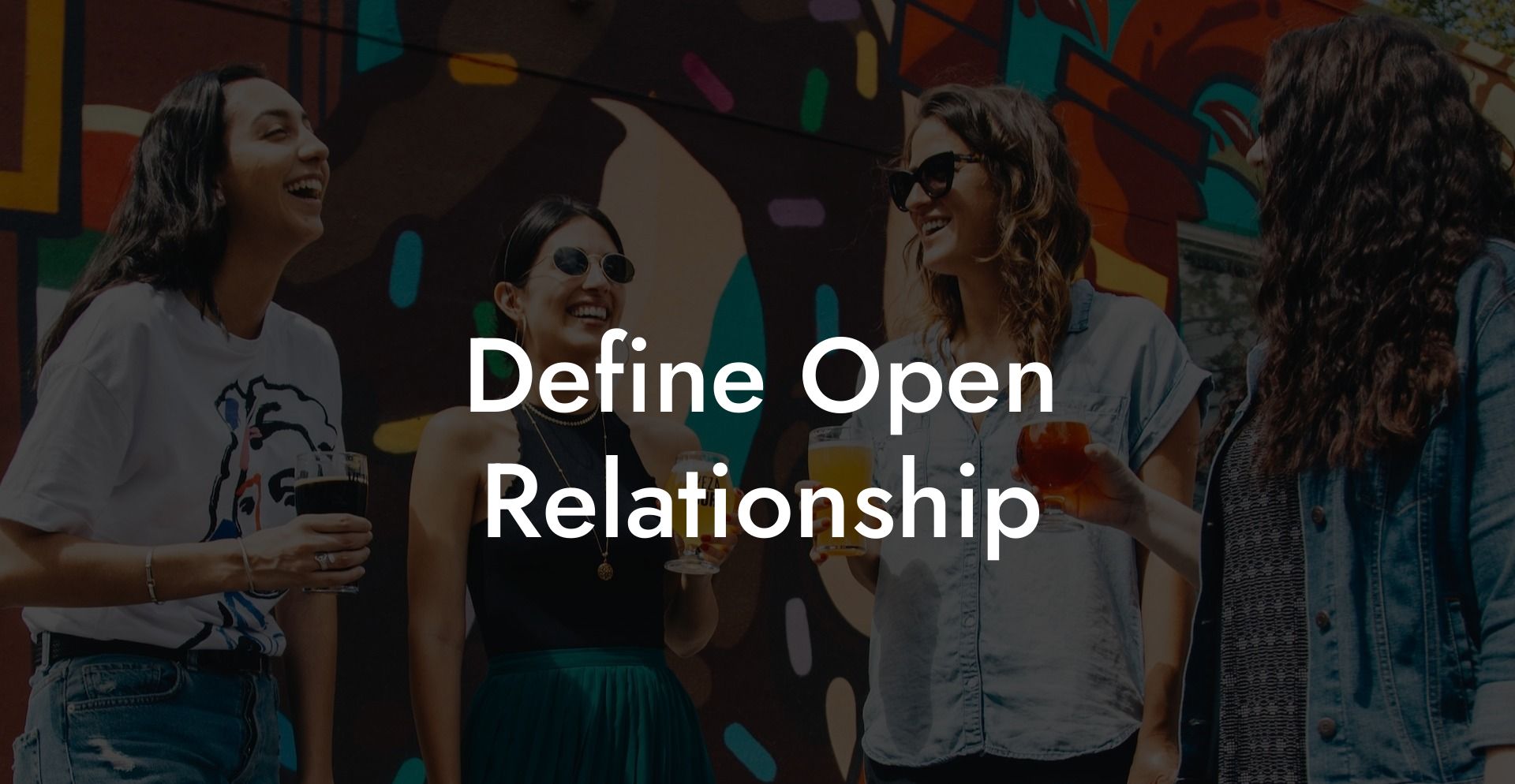In today's fast-paced and ever-evolving world, many couples are seeking alternative ways to define and maintain their romantic relationships. Enter the concept of an open relationship, a popular, yet often misunderstood term that opens doors to new forms of intimacy and love. So, what exactly does it mean, and how can it work for you and your partner? In this in-depth guide, we will delve into the world of open relationships, providing you with an understanding of the subject and helping you decide whether it's the right choice for you.
Define Open Relationship Table of Contents
Understanding Open Relationships
Setting Boundaries and Guidelines in Open Relationships
Understanding Open Relationships
An open relationship is a committed partnership where both individuals agree to explore romantic, emotional, and/or sexual connections with other people, while still maintaining emotional connection, trust, and stability in their primary relationship. It is important to note that open relationships can take various forms and are customized according to the needs of the people involved.
Different Types of Open Relationships
- Polyamory: Involves having multiple romantic and/or sexual relationships with the full knowledge and consent of all parties involved. Polyamory can take many forms, like hierarchical polyamory (where there is a primary relationship and secondary relationships), or non-hierarchical relationships with no designated hierarchy among connections.
- Swinging: Typically consists of committed couples who engage in sexual activities with other couples or individuals. Swinging can be seen as a shared experience and a form of recreation rather than seeking emotional connections with outside partners.
- Monogamish: Coined by sex advice columnist Dan Savage, this term refers to a couple that is mostly monogamous but permits occasional sexual experiences outside of the partnership (such as threesomes or flings during travel).
Setting Boundaries and Guidelines in Open Relationships
In order for an open relationship to succeed, it is crucial for both partners to establish clear boundaries and agreements. Communication is key, and these are some general guidelines that you should consider discussing with your partner:
- Openness and honesty about all romantic, emotional, and sexual connections
- Setting rules for safe sex practices to protect everyone's health and well-being
- Determining emotional boundaries (for example, whether there are limits to the emotional connections formed with others)
- Agreeing on certain restrictions, such as specific people or activities off-limits
- Establishing how much detail you'd like to share about your experiences with your primary partner
- Being open to reevaluating and modifying boundaries as your relationship evolves
Benefits of Open Relationships
For some people, open relationships can provide an array of benefits that help to maintain a happy and fulfilling partnership, such as:
- Increased opportunities for personal growth and self-discovery
- Enhanced trust between partners
- A more diverse range of sexual experiences
- The ability to explore different aspects of yourself and others
- Reduced pressure on one partner to meet all emotional and sexual needs
- Improved communication skills
Challenges in Open Relationships
While open relationships can offer many rewards, they also come with unique challenges that must be navigated mindfully:
- Managing feelings of jealousy, insecurity, or envy
- Navigating societal judgment and misconceptions about open relationships
- Ensuring that both partners are equally comfortable with the arrangement
- Balancing time, attention, and emotional energy between multiple relationships
- Managing potential legal or financial complications related to polyamorous households
Define Open Relationship Example:
Imagine a couple, John and Jane, who have been together for several years. They decide to transition from a monogamous relationship to an open relationship. They openly communicate their needs and establish clear boundaries, such as only pursuing new connections outside of their social circle, always practicing safe sex, and being honest with each other about their experiences. Both partners may have casual sexual encounters with others, but they remain emotionally committed to each other. Over time, John and Jane strengthen their trust, spice up their sex life, and satisfy their desires while remaining a devoted, loving couple.
Exploring the idea of an open relationship can be an eye-opening and empowering experience. However, it is important to remember that each relationship is unique, and what works for one couple might not work for another. By engaging in open, honest dialogue and maintaining trust and communication with your partner, you can discover whether an open relationship is the right choice for your own journey. If this article has resonated with you, be sure to share it with friends and explore other guides on The Monogamy Experiment to continue enriching your understanding of love and relationships.













